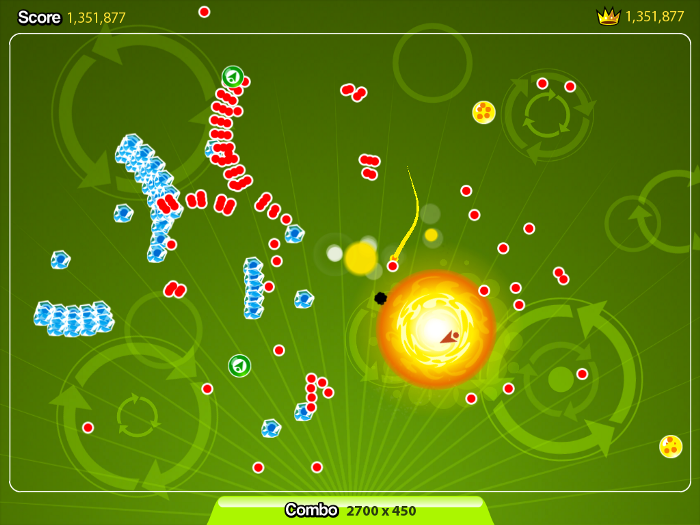Reaching a Social Milestone
- Posted: October 23 2020
It’s been a long time since I blogged regularly (and when I say “regularly” I mean maybe 10 times before I became distracted with something else ;)).
With that in mind, I decided to dredge up some of my old blog posts, and there was one in particular that I am quite proud of. It dates back to 2010 and gives my opinion on social media, and the idea of ‘achievements’.
I hope you enjoy. (Originally published 2010)
 Photo by Denny Müller on Unsplash
Photo by Denny Müller on Unsplash
Perhaps you’re the owner of a PC, laptop, iPhone, iPad, PDA, Blackberry, xBox, cable….the list goes on. I say perhaps, but it still does not excuse the fact that computers and the internet affects everyone on this planet regardless of their situation. However, if you do own a device that can connect to the net, then you’re more than likely involved, to some degree, with social media. In some way or another, this phenomenon has, in turn, touched the majority of this planet whether they participate or not. With the internet being one of the most immediate and effective communication networks in the world, it seems the power of social networking can not only benefit the user by providing an enriched environment for them to ‘work’ or ‘play’ in, but also benefit others in need through charity raising, corporations to market their goods and famous people to become even ‘famouser’.
At the end of the day, websites like Facebook cater for everyday people who want to share, shout, watch, or have an opinion, and even those that merely want to have a casual conversation.
Like any tool in the world, it depends on what type of ‘tool’ is at the brain end of the system for it to do what is required of it. With the westernised world moving at an increasingly faster pace through the benefits of technology, it seems the internet is convenient for us, a plethora of aid in any type of situation, something we use when it suits us. However, and there will always be many sides to the story, I feel that we are merely more complacent through this outcome, and that the world is at our fingertips, whenever we want it. I also feel that we are also being moulded by the ‘giant marketing beast’ that dominates the internet, and we must be careful what shape we assume when we are ‘fully baked’.
While the majority of social network users are the ‘lesser baked’ generations, there are still more mature people utilising the networks. The monikers of Facebook and Twitter are standard in nearly anyone’s language in the present day, even the term ‘hash tag’ is popping up in popular media. In this terribly labeled WEB 2.0 age, many online services are becoming somehow intrinsically intertwined with the likes of Facebook and Twitter, thus, nearly unwittingly, we’re being led to supply Facebook with access to all other parts of our virtual DNA. This may sound slightly cynical, especially coming from a web devigner (I’m coining this, as a designer/developer), especially as I fully embrace the concept that I so fully despise. If you can’t beat ’em, join ’em, and always stick close to the enemy.
Whilst there are many arguments for and against the use of social media, I want to focus on what seems to be a smaller developing facet of the phenomenon — awards or milestones. I’m not talking about ceremonial awards, so any thought of a red carpet should evaporate. I’m talking about awards given to users of social networking dependent on their actions within their virtual environment.
Before social media was around, ‘virtual’ awards simply seemed to start with computer games, like back in the old days, when you’d reach a predefined milestone e.g. a certain level, a certain number of points, you’d be awarded with a new, devastating weapon, or unlock a hidden bonus level in the game. This is a good thing in most people’s books and encourages the user to play more, starting a vicious circle of gameplay, award, gameplay, award and so on towards the ultimate fulfilment of completing the game. For many experienced gamers in the world, this is perfectly acceptable. It’s harmless enough and really is the manufacturer’s way of saying, “here’s some content in the game that you’ve already paid for, but you’re going to have to put in a little more effort to enjoy it all.” Fair enough — that’s the general appeal of games.
Recently, with games evolving at breakneck speed, apps have brought gaming out of it’s ‘nerd’ pigeonhole. With apps becoming a part of everyday life, gaming changes ever so slightly. I think the first change is the affordability of the games. No longer do you have to fork out $50+ for a game and expect the earth from it. With iDevices for example, games cost, on average, between $1.20 and $15, therefore I think the expectations on game content is reduced. I think the second change is their ‘fingertip availability’ (I’m going to coin that phrase), therefore enabling a much wider demographic to have much more immediate access to games. Personally, I think these factors have made computer games more acceptable than ever.
I’ve been playing a game recently called ‘Tilt To Live’, on my iPhone which has me completely addicted. The premise is you (an arrow) have to navigate away from ever-spawning red dots. You can destroy these little nuisances by utilizing a number of different weapons. That, in a nutshell is it.

Whilst being a very simple, but greatly designed game, it was the unique award scheme that enticed me. Other games have quickly adopted the same tactic, but like the whole game TTL’s award system seemed very robust.
The developers of the game (a two man show), have looked at the game, and picked some milestones that the player can reach. Some of these are pretty standard, such as getting a certain number of points in a combo, using a certain weapon to kill a record number of dots. There are also some ‘wooden spoon’ type awards, like lasting less than five seconds (“Our Pity”), dying with an extraordinary amount of red dots on the screen, one you get for not moving for more than five seconds (“AFK “— or Away From Keyboard for all you noobs, yep, I had to look it up too!), even one for bouncing between the left and right walls four times.
The upshot of all this is the fact that while no extra gameplay is added through the earning of each individual award, the player has a rising total from each award, some being worth ten, twenty points. It’s hitting certain numbers in this scale that will eventually unlock new weapons. Once the weapons are all unlocked, there will more than likely be a number of awards still to win. These are worth nothing more than the feeling of achievement in gaining them.
What’s this all got to do with social media, I hear my own brain ask. Well, in the last few weeks, I’ve been looking into social media sites with fervour, and at the moment, there seems to be increasing attention to awards.
I joined a relatively new social community a few weeks ago called blip.fm. A sort of mashup of ideas, but a simple breakdown would be like Twitter with the ability to attach a song, with the terminology of ‘tweeting’ changed into ‘blipping’. The song search is incredibly deep, pulling multiple versions of the tune from the web, including originals, live performances and any covers that have been posted. Therefore after blipping for a while, you have a ever-increasing timeline of your favourite songs, or your least favourite songs, or whatever takes your fancy. It only a couple of years old, but some ‘dj’s’ already have over 10,000 listeners.
There is another facet of this music sharing site that pertains to awards. A panel on the right of the site shows each DJ to have picked up a number of ‘badges’, each one pertaining to a different milestone being reached.
I wonder how far this will go? With social media now being endorsed by corporate business as a valid promotional tool, it’s obvious that it’s here to stay. I think Andy Warhol was very astute in his summation of ’15 minutes of fame’ with the whole world offered the opportunity now, through media sharing — or sometimes media ‘showing’ with less of the sharing. We all saw early on in the play that some people on social media sites are all about the numbers — the more ‘friends’ you have, well, it’s obvious how popular you are! Everyone has their own reason to use sites such as Facebook, Twitter or youTube whether or not it may be to simply gather numbers and make achievements.
So, how are the communities of social networking going to cope with social award schemes? Will it enhance how communities interact, or is it just another gimmick to entice more and more use of the applications. Seriously, how will users gain from these awards?
What might there be? I don’t think they’ll be as blunt as, ‘first 1000 friends gathered’, but more along the lines of ‘you have friends in more than 20 countries’, ‘or the promotion of the most events in your area’ — these sound like useful reasons to be awarded, still encouraging good communication and social awareness.
If these social milestones creep into sites such as Facebook, it would probably be best if they were kept under wraps until they are unlocked, instead of just providing a checklist of statuses to gain. In this way, they might be a good tool for a better insight into the type of person you are. Deeper, rather than shallower.
Back...